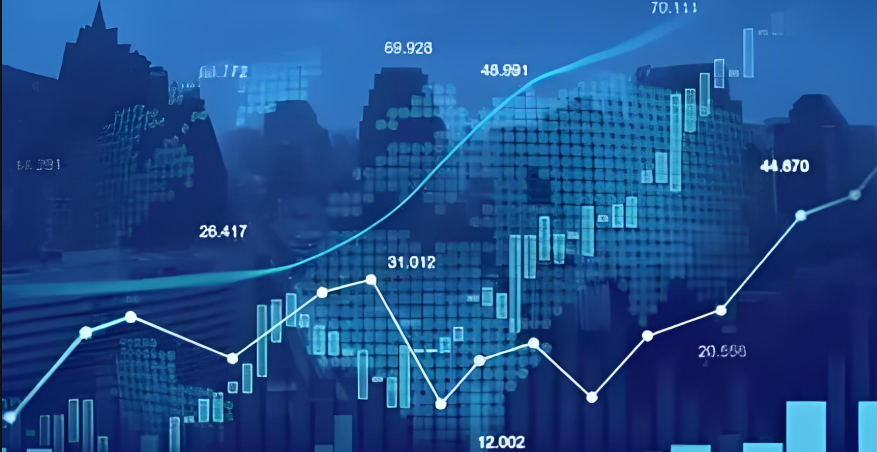Concerns Over Germany's Economic Outlook
Advertisements
- July 6, 2025
- Investment Blog
- 423
Berlin, the capital of Germany, is currently under a thick blanket of clouds, seemingly echoing the grim economic forecasts being delivered from the halls of government. At a press conference that caught the attention of economists and citizens alike, Ruth Brand, the head of the Federal Statistical Office of Germany, made an announcement that sent shockwaves throughout the nation: the German economy has contracted for the second consecutive year. This revelation hit hard many who had invested hopes in a nation once touted as the "engine of Europe."
This downward spiral comes amidst a backdrop of challenges that extend far beyond the typical boom-and-bust cycles of any economic system. Germany's recent economic woes are reflective of deeper structural issues, particularly an increasingly hostile global trade environment. The nation has long prided itself on its robust export sector, which is now grappling with declining demand. In tandem with this, skyrocketing energy costs have made life difficult for businesses across the board. To put numbers to the pain, data shows that Germany's energy expenses surged by 20% year-on-year in 2022. The high-interest rate climate has further compounded the problem, augmenting business financing costs to unmanageable levels.

The press conference revealed startling statistics that underscore the economic malaise gripping Germany. Ruth Brand noted that the Gross Domestic Product (GDP) growth rate for 2022 plummeted to -0.5%, which is a notable decline from the previous year's rate of -0.2%. Beneath these statistics lies a tale of struggle from countless businesses, particularly small and medium-sized enterprises (SMEs). Many of these businesses find themselves caught in a squeeze, unable to effectively cope with soaring operational costs and fierce competition in the marketplace.
The grim landscape facing German exports has become an acute issue in the country's economic narrative. Over the last few years, there has been a rapid emergence of manufacturing sectors in various developing markets, posing unprecedented challenges to Germany's industries that were once considered unbeatable. Take the automotive sector, for instance, where troubling data from 2022 highlights a staggering 15% decline in car exports. The potent combination of emerging powers in Asia equipped with lower production costs, innovation, and sharp insights into new market demands has significantly undermined Germany's automotive market share. In an arena where the stakes are high, the pressure is tangible as competitors nibble away at Germany's established dominance.
Moreover, as Europe faces even greater fluctuations in its energy market, the crisis is exacerbating Germany's economic vulnerabilities. As the continent's largest economy, Germany's dependence on energy is considerable; thus, surging prices for gas and electricity have inevitably escalated production costs, diminishing the competitive edge for German goods. Business leaders are increasingly voicing concerns over the implications of these energy costs on their long-term viability.
Compounding these trials is the enduring high level of interest rates established by the European Central Bank (ECB) to tackle persistent inflation. These rates have not only made borrowing more expensive for businesses, but they have also stifled investment as firms become increasingly cautious in an uncertain financial climate. The results have led to weakened economic momentum, accompanied by a sense of mounting anxiety among investors.
With so much weighing down on its economic future, the outlook appears bleak. Economic experts remain skeptical, predicting that 2023 will continue to present significant challenges and may even witness further contraction. The pressing question lingers: can Germany identify a path through these tumultuous waters?
In response to such crises, the German government has taken a proactive stance, rolling out a broad range of initiatives aimed at rejuvenating economic growth. Policymakers are looking at tax reductions, improved public spending, and the transition toward renewable energy sources as central pillars of their strategy. Yet, the effectiveness of these measures in the short term remains uncertain, leaving painful adjustments needed in terms of structural economic shifts.
On the corporate side, many German firms are seeking transformation. In order to carve out a competitive edge, a wave of companies is stepping up R&D investment, fostering innovations intended to help them win in a cut-throat economic climate. Strategies to diversify production and reduce dependence on singular markets are becoming increasingly commonplace among businesses, revealing a shift in thinking aimed at addressing vulnerabilities in a rapidly changing world.
Even with all these initiatives, the road to reversing the economic decline is fraught with uncertainty. The global economy remains an unpredictable entity, and geopolitical tensions add layers of complexity to Germany's recovery journey. Each of these factors serves as formidable hurdles that could further impede economic revitalization.
The ongoing struggle of the German economy is not merely an isolated concern; it serves as a bellwether for both Europe and the global economic landscape. It raises awareness that in an interconnected world, fluctuations within one economy can incite a cascade of repercussions across borders. As Germany navigates these challenges, the question of economic resilience becomes paramount.
Examining Germany's situation prompts broader inquiries: in an era defined by globalization, what steps must be taken to foster sustainable economic growth? How can nations remain competitive amidst escalating market pressures? These inquiries are not solely for Germany but should resonate with leaders worldwide as they seek sound policies in turbulent times.
While questions loom over the future of the German economy filled with complexities, one thing remains clear: continual innovation and a proactive approach to challenges will be essential in finding a way forward. Only time will reveal whether Germany can reclaim its status and resurge from its current economic slump.
Leave a Comment